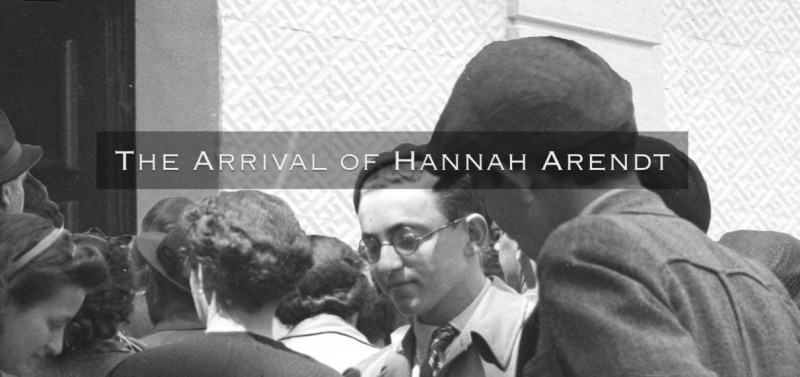
The Arrival of Hannah Arendt
This film describes the arrival of Hannah Arendt - a Jewish, German-American political theorist and publicist - in New York and her reflections on flight and helping people start over.
Januar
8th
1940
Mrs. Lessie Sachs Wagner
161 West 72nd Street
New York, N.Y.
Sehr geehrte gnädige Frau:
Wir bedauern außerordentlich, Ihnen die Mitteilung machen zu muessen, dass der Board of Directors Ihren Ansuchen um ein Stipendium leider nicht stattgeben konnte, da die europäischen Probleme allzusehr im Vordergrund stehen. Zudem erscheint die Veroeffentlichung eines Gedichtbandes in deutscher Sprache unter den heutigen Umstaenden als nahezu ausgeschlossen.
Mit den besten Empfehlungen,
Ihr sehr ergebener
Markus Wolf
January
8th
1940
Mrs. Lessie Sachs Wagner
161 West 72nd Street
New York, N.Y.
Dear Madam:
We are extremely sorry to have to inform you that the Board of Directors has unfortunately not been able to grant your request for a scholarship, as the European problems are too much in the foreground. Moreover, the publication of a book of poems in German seems almost impossible under the present circumstances.
With best regards,
Your very devoted
Markus Wolf
Lessie Sachs-Wagner (1872-1942) born in Breslau was a German artist, poet and author of Jewish origin. She studied at the Breslau Academy of Arts and Crafts and then at the Painting and Drawing School for Women in Munich. While studying in Munich she joined the Communist Party of Germany in 1919. She was imprisoned in Breslau XII penitentiary for six months in 1920. During this time she continued to write poetry.
In 1933 she married pianist Josef Wagner, and a year later their daughter Dorothee was born. The family decided to leave Germany in 1937. They fled to the United States, where they lived in New York. In 1942 Lessie Sachs Wagner died of cancer. After her death, Josef Wagner produced a volume of her poems with a preface by Heinrich Mann, called “Tag- und Nachtgedichten”.
The American Guild for German Cultural Freedom was an organization that helped German artists, writers and intellectuals in exile whose ability to work was affected by the facist government in Germany. The goal of the organization was to help keep German culture alive outside of Germany, as it was unable to survive and prosper within its borders. The American Guild for German Cultural Freedom helped these people through financial aid. The refugee experience of the German exiles varied for each individual. One of the main struggles of refugeedom is the adaptation to a completely new place and finding a support system. The American Guild for German Cultural Freedom tried to help German exiles with that adaptation, so that they would be able to simultaneously also focus on their work.
Letter from Markus Wolf to Lessie Sachs Wagner, January 1940 © Deutsches Exilarchiv 1933–1945 der Deutschen Nationalbibliothek – German Exile Archive 1933-1945 from the German National Library.